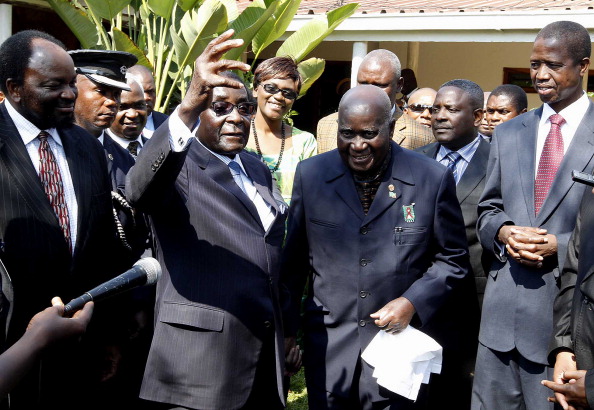
1. Origins
The original population of Mozambique were Bushmen who were hunter-gatherers. The great migrations from the Great Lakes saw the bantu speakers migrating to Mozambique in the first millennium, and Arab and Swahili traders settled in the region thereafter. It was colonised by Portugal in 1505.
2. Independence
Guerrilla activity began in 1963 and was so effective that 10 years later Portugal was forced to dispatch 40,000 troops to fight the rebels. A cease-fire was signed in 1974, and after 470 years, Mozambique became independent on June 25, 1975.

3. Samora Machel’s murderers have never come to light
The first president of Mozambique was Samora Machel (Graca Machel’s ex husband). He supported and allowed revolutionaries fighting white minority regimes in Rhodesia and South Africa to operate within Mozambique. Soon after Mozambique’s independence both of these countries attacked Mozambique with an anti-Frelimo organisation called RENAMO. He died in a plane crash in 1986 and it has widely been suspected that the apartheid regime was behind his death.
4. Economy
Things were tough for Mozambique’s economy following the in 2000/2001 floods which affected about a quarter of the population and destroyed much of its infrastructure. There was also drought in 2002. As a result poverty remains widespread.
5. Music
Popular music in the country is varied; ranging from giant timbila orchestras, marrabenta to hip-hop and Maputo jazz-fusion.
6. Tourism
This is a huge cash cow for Mozambique. In 2003 an estimated 726,100 tourists visited the country. Popular spots include Inhambane, Xai Xai, Pemba, Ponta do Ouro and Ponta Malongane.
Mozambique on Thursday marked 40 years of independence from Portugal with military parades and displays in extravagant ceremonies that were shunned by the opposition.
Some 40,000 people attended the festivities in the seaside capital Maputo. Several heads of state also attended, including Zimbabwe’s President and African Union Chair Robert Mugabe.
“It is in this stadium, with emotionally charged words, that (independence leader) Samora Machel proclaimed national independence,” President Filipe Nyusi declared.
“As we did 40 years ago, today we cry loudly ‘down with divisions’,” he added.
Sporting brand-new uniforms for the occasion, the military staged a parade, with paratroopers making a spectacular landing, and fighter jets flying above the Machava Stadium in Maputo’s outskirts.
The main event was the arrival of the “flame of unity”, a torch symbolising togetherness that has been carried across the southern African country since April 7.
But conspicuously absent from the celebrations was former rebel commander and now opposition Renamo leader Afonso Dhlakama, who claims the October elections that brought the ruling Frelimo party back to power were rigged.
Renamo waged a 16-year war against Frelimo before signing a peace deal in 1992, and ended a renewed low-level insurgency just weeks ahead of last October’s election.
Mozambique has recently become a prime investment destination following the recent discovery of huge natural gas and coal deposits.

Zimbabwean President Robert Mugabe (R) flanked by former Zambia’s first President Kenneth Kaunda talks to journalists on August 3, 2012 in Lusaka. Mugabe is in Zambia ahead of the opening Zambia’s annual Agriculture and commercial show where he is expected to give a speech. AFP PHOTO / JOSEPH MWENDA (Photo credit should read Joseph Mwenda/AFP/GettyImages)
Southern Africa Development Community (SADC) Chairperson Robert Mugabe has described Mozambique’s 40 years of independence as progress in the development for the region.
Mozambique was celebrating her 40 years of political independence today.
Mr Mugabe told journalists at Heroes square today that Mozambique’s freedom was a remarkable achievement that reflects other revolutionary histories that have taken place in the region.
The Mozambique Heroes Square is that country’s place of burial for the late Samora Machel and Eduardo Mondlane, among other freedom fighters.
Mr Mugabe, who is also African Union (AU) chairperson, added that the contribution of countries such as Zambia, Zimbabwe, Namibia and the coming of political dispensation of South Africa was a reflection of Mozambique’s achievement of freedom.
“Mozambique’s independence meant that we now had a country next to us which we can use as a launching pad,” Mr Mugabe said.
He explained that the people of Mozambique were now free to join the struggle in the SADC region.
“We celebrate it in that perspective but of course we celebrate it also with sadness that the great ones such as Samora Machel and Eduardo Mondlane are no longer with us,” he said.
Mr Mugabe said the monument at Heroes Square was a legacy to remember the departed great sons of Africa.
President Edgar Lungu was among other SADC Heads of State who laid wreaths at the Mozambique’s Heroes Square where the late Samora Machel and Eduardo Mondlane are buried.
Other leaders that participated in the event include Presidents of Namibia and Zimbabwe.
Mr Mugabe praised both former presidents Kenneth Kaunda and Joaquim Chissano for their immense role in promoting peace, unity and love among the region’s citizens.
“This gives us impetus to continue observing such commemorations,” Mr Mugabe.
He said Dr Kaunda’s contribution remains a print among SADC member states.
Yesterday upon arrival in Maputo Zambia’s President Edgar Lungu said African leaders have a role to ensure that resources were distributed equitably among their citizen in order to attain economic growth.
President Lungu told journalists that African leaders were working hard to ensure that they distribute a fair share of development among their peoples.
He is among SADC leaders who attended Mozambique’s 40th independence anniversary.
Other leaders are President of Tanzania Jakaya Kikwete, Zimbabwe’s Robert Mugabe and Namibia’s Hage Geingob.
Former SADC leaders in attendance include Zambia’s Kenneth Kaunda, Botswana’s Festus Mogae, Tanzania’s Benjamin Mkapa, Namibia’s Hifikepunye Pohamba, Mozambique’s Joaquim Chissano and Armando Guebuza.


